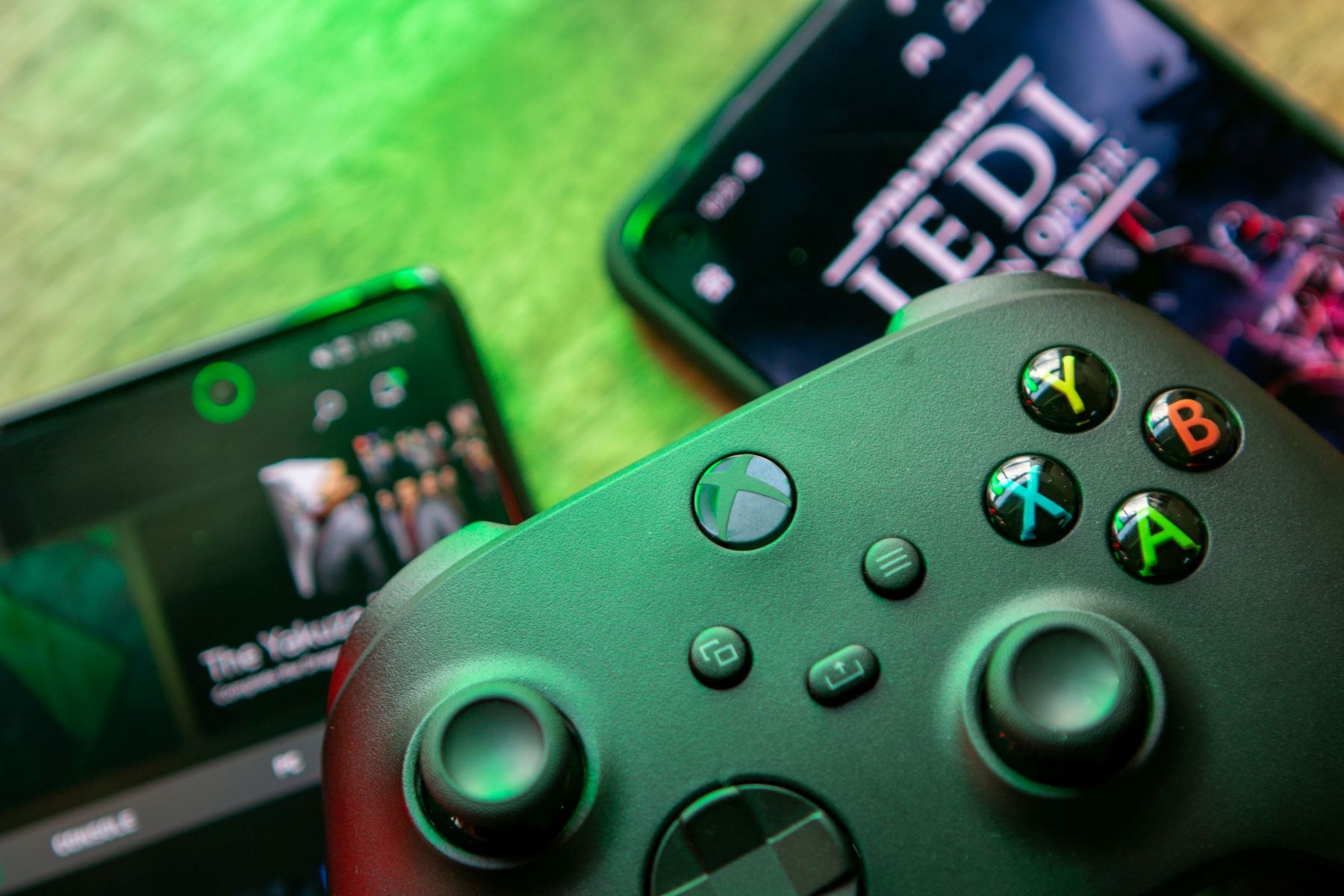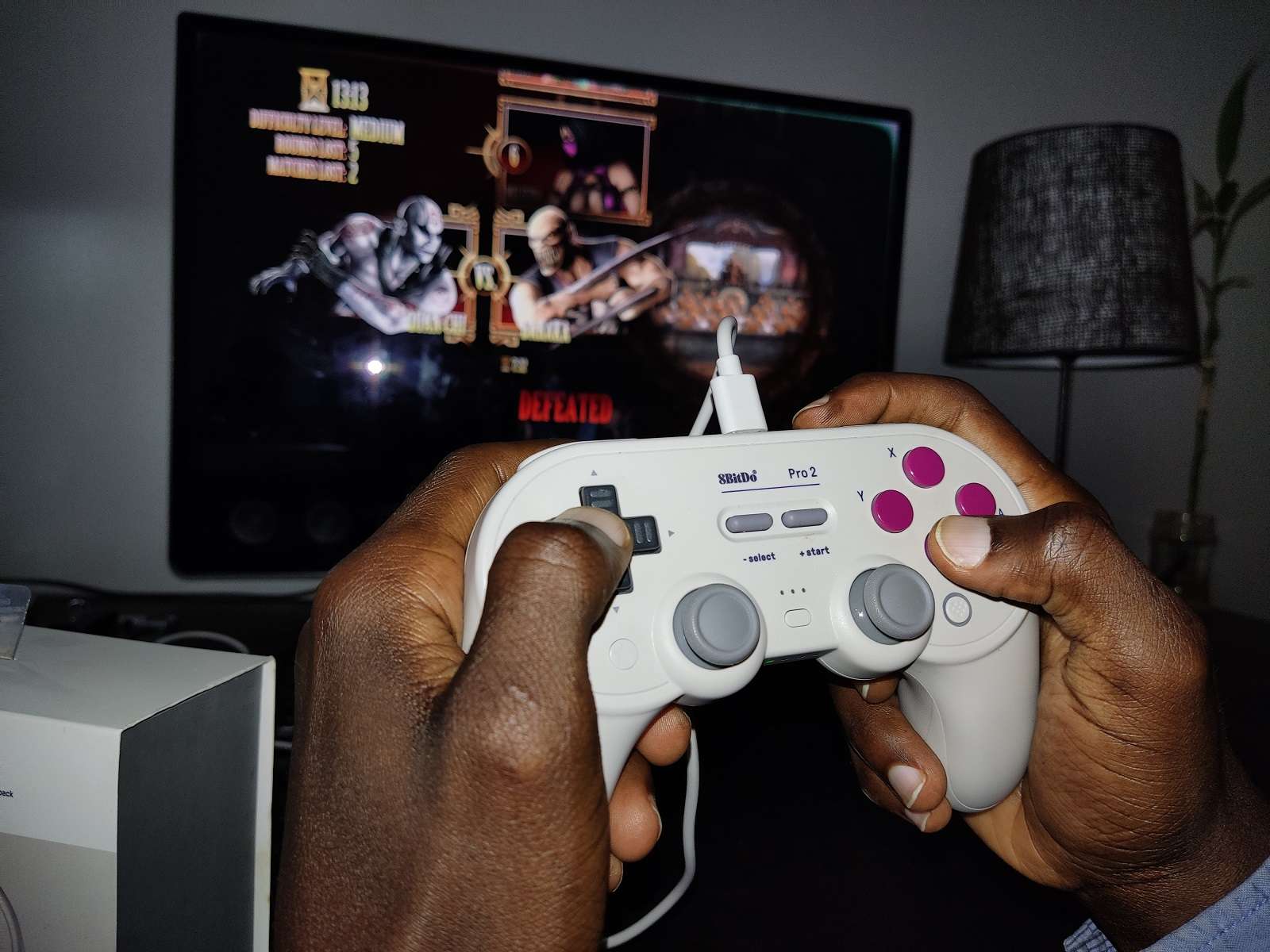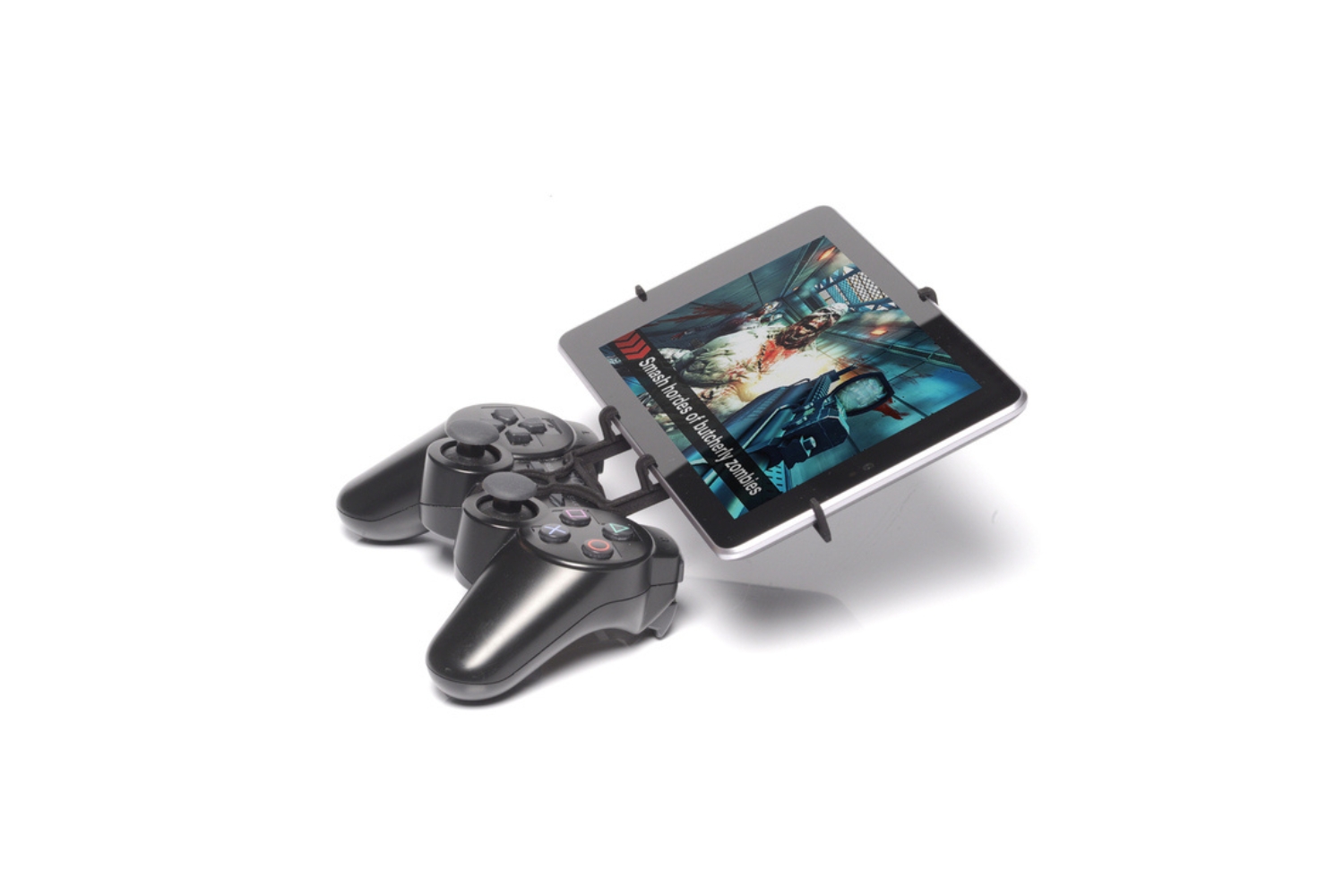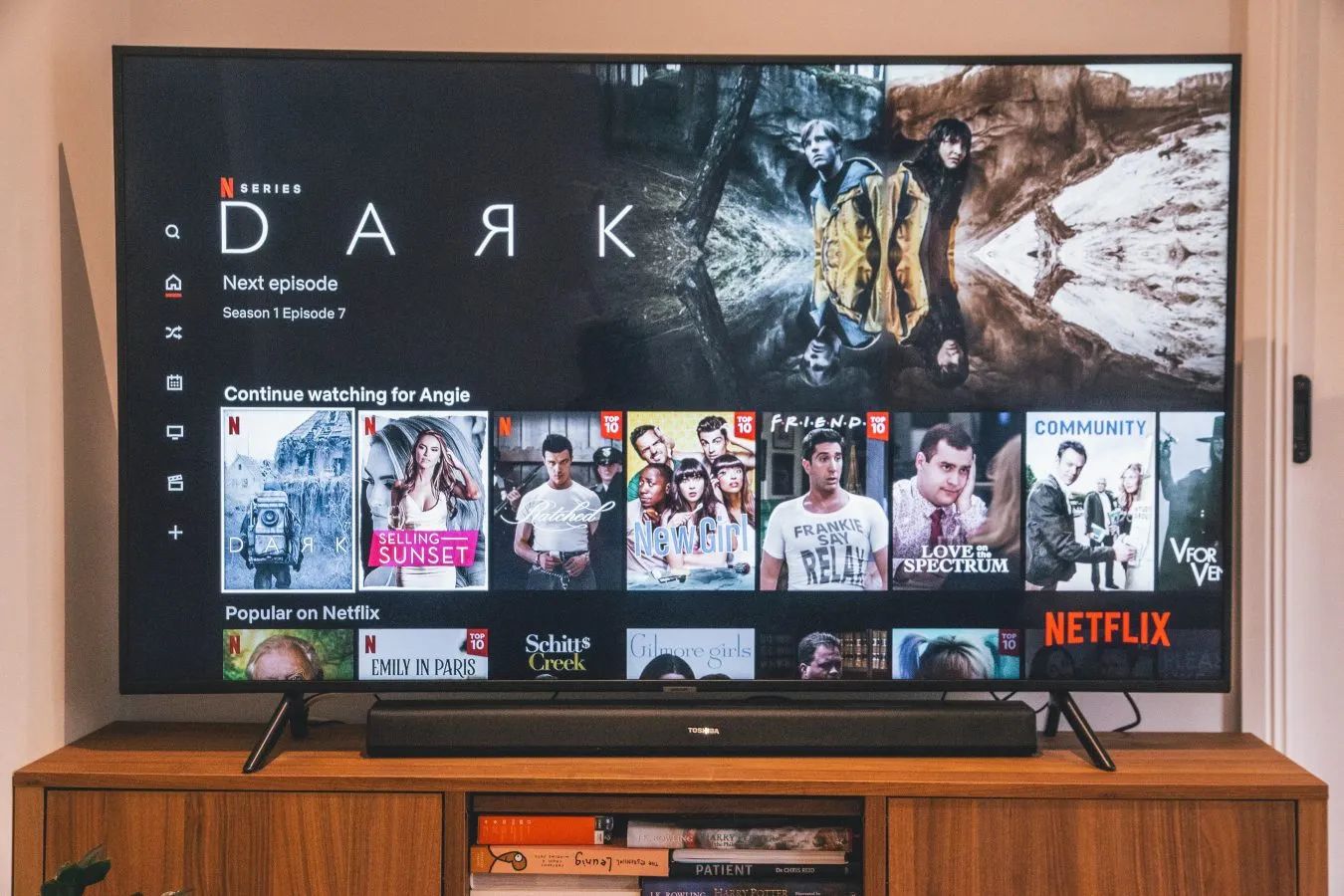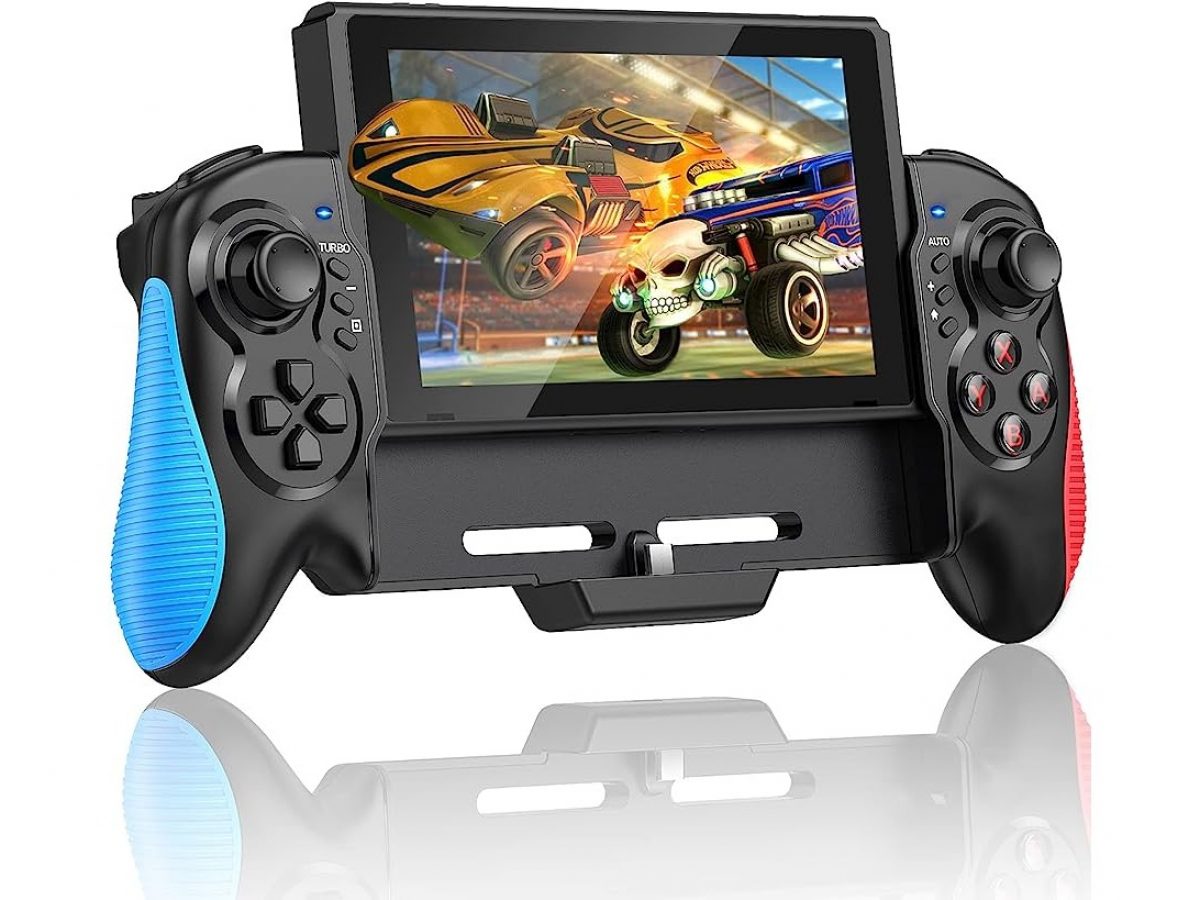Introduction
Introduction
Android game controllers have revolutionized the gaming experience, offering enhanced precision and control for a wide range of games. Whether you’re navigating intense battles or exploring captivating virtual worlds, these controllers serve as indispensable tools for gamers seeking an immersive experience on their Android devices. Understanding how these controllers connect to Android devices is crucial for optimizing the gaming experience. From wired connections to wireless options like Bluetooth and USB, the versatility of Android game controllers enables seamless integration with various devices, providing gamers with the flexibility to choose their preferred connection method.
As we delve into the intricacies of connecting Android game controllers, it’s important to recognize the impact of these devices on the gaming landscape. With ergonomic designs and customizable features, these controllers cater to diverse gaming preferences, empowering users to tailor their gaming setups to suit their individual needs. By exploring the different connection methods, gamers can make informed decisions about the most suitable option for their gaming endeavors, ensuring a smooth and uninterrupted gaming experience.
Join us as we explore the intricacies of connecting Android game controllers, shedding light on the seamless integration and diverse connectivity options that contribute to an unparalleled gaming experience. Whether you’re a casual gamer or a dedicated enthusiast, understanding the mechanics of connecting Android game controllers will undoubtedly elevate your gaming journey to new heights.
Wired Connection
When it comes to connecting an Android game controller, a wired connection offers a straightforward and reliable method for seamless integration. Most Android game controllers come equipped with a standard USB cable that can be directly plugged into the USB port of the Android device. This direct physical connection ensures minimal input lag, making it an ideal choice for gamers who prioritize responsiveness and precision during gameplay.
One of the key advantages of a wired connection is the consistent power supply provided to the controller, eliminating the need for batteries or charging. This not only ensures uninterrupted gaming sessions but also minimizes the risk of sudden disconnection due to low battery levels. Additionally, the simplicity of the wired connection makes it a convenient option for gamers who prefer a hassle-free setup without the complexities of wireless configurations.
Furthermore, the plug-and-play nature of a wired connection eliminates the need for additional pairing processes or Bluetooth setup, streamlining the overall connection experience. This makes it particularly appealing for gamers who prioritize simplicity and efficiency in their gaming setups. Whether you’re engaging in intense multiplayer battles or immersing yourself in single-player adventures, the reliability and stability of a wired connection contribute to a seamless gaming experience.
As technology continues to evolve, some Android devices may feature USB-C ports instead of traditional USB ports. In such cases, compatibility adapters or USB-C to USB-A cables can be utilized to ensure seamless connectivity between the Android device and the game controller. This adaptability underscores the versatility of wired connections, accommodating a wide range of devices and configurations to cater to the diverse needs of gamers.
Overall, the wired connection option remains a dependable choice for connecting Android game controllers, offering a blend of reliability, simplicity, and consistent power supply that enhance the gaming experience. Whether you’re engaging in high-octane action sequences or navigating intricate puzzle challenges, the wired connection provides a solid foundation for immersive and responsive gameplay.
Bluetooth Connection
Embracing the wireless convenience of Bluetooth technology, connecting an Android game controller via Bluetooth offers a liberating and versatile gaming experience. With the proliferation of Bluetooth-enabled devices, this wireless connection method has become increasingly popular among gamers seeking flexibility and mobility in their gaming setups. The seamless pairing process and freedom from physical constraints make Bluetooth connections an attractive option for a wide range of gaming scenarios.
One of the primary advantages of Bluetooth connectivity is the absence of physical cables, allowing for greater freedom of movement during gameplay. Whether you’re engaging in dynamic virtual battles or exploring expansive gaming landscapes, the wireless nature of Bluetooth connections enables unrestricted mobility, enhancing the overall gaming experience. This freedom from cables contributes to a more immersive and unencumbered gaming experience, empowering gamers to fully immerse themselves in the virtual worlds they explore.
Furthermore, the intuitive pairing process of Bluetooth connections ensures a user-friendly experience, enabling quick and seamless integration between the Android device and the game controller. This streamlined setup process minimizes the need for complex configurations, making Bluetooth connections accessible to gamers of all skill levels. Additionally, the ability to pair multiple controllers to a single Android device enhances the multiplayer gaming experience, fostering engaging and collaborative gameplay sessions among friends and family.
While Bluetooth connections offer unparalleled convenience and mobility, it’s essential to consider factors such as battery life and latency. Depending on the specific game controller model and the Android device’s Bluetooth capabilities, it’s important to monitor battery levels to ensure uninterrupted gaming sessions. Additionally, minimizing potential sources of interference and optimizing the Bluetooth signal strength can help mitigate latency issues, ensuring responsive and fluid gameplay.
Despite these considerations, the wireless freedom and adaptability of Bluetooth connections make them an appealing choice for gamers who prioritize convenience and mobility. Whether you’re embarking on solo gaming adventures or engaging in multiplayer showdowns, the wireless prowess of Bluetooth connections elevates the gaming experience, offering a seamless and immersive journey into the realms of virtual entertainment.
USB Connection
Connecting an Android game controller via USB offers a reliable and versatile gaming experience, leveraging the convenience of physical connectivity while ensuring seamless integration with a wide range of Android devices. With the ubiquity of USB ports on modern devices, this method provides a straightforward and dependable way to link the game controller to the Android platform, catering to the diverse needs of gamers seeking stability and responsiveness in their gaming setups.
One of the key advantages of a USB connection is the consistent power supply it provides to the game controller. Unlike wireless options that rely on batteries or charging, the direct physical connection via USB ensures a continuous and reliable power source, minimizing the risk of interruptions during intense gaming sessions. This reliable power supply not only enhances the gaming experience by eliminating concerns about battery life but also contributes to responsive and precise gameplay, making it an ideal choice for gamers who prioritize performance.
Furthermore, the plug-and-play nature of USB connections simplifies the setup process, eliminating the need for complex pairing procedures or Bluetooth configurations. This user-friendly approach streamlines the integration of the game controller with the Android device, ensuring a hassle-free experience for gamers of all skill levels. Whether you’re navigating intricate puzzles or engaging in fast-paced action sequences, the straightforward nature of USB connections facilitates a smooth and efficient gaming experience.
Additionally, USB connections offer broad compatibility with various Android devices, accommodating devices with traditional USB-A ports as well as those equipped with modern USB-C interfaces. This adaptability ensures that gamers can seamlessly connect their controllers to a diverse array of devices, underscoring the versatility and accessibility of USB connections in the gaming landscape.
Despite the prevalence of wireless connectivity options, the stability and simplicity of USB connections make them an appealing choice for gamers who prioritize reliability and ease of use. Whether you’re embarking on solo gaming adventures or engaging in multiplayer competitions, the dependable nature of USB connections ensures a seamless and responsive gaming experience, empowering gamers to fully immerse themselves in the captivating worlds of virtual entertainment.
Conclusion
As we conclude our exploration of connecting Android game controllers, it becomes evident that the diverse connectivity options cater to the varied preferences and priorities of gamers. Whether through the reliability of wired connections, the wireless freedom of Bluetooth, or the versatility of USB, each method offers unique advantages that contribute to an enhanced gaming experience.
Wired connections provide a dependable and responsive gaming experience, ensuring minimal input lag and consistent power supply. This method appeals to gamers who prioritize stability and simplicity in their gaming setups, offering a hassle-free plug-and-play experience that fosters immersive gameplay.
On the other hand, Bluetooth connections offer unparalleled mobility and freedom from physical constraints, enabling gamers to enjoy seamless gameplay without the limitations of cables. The intuitive pairing process and support for multiplayer gaming make Bluetooth connections an attractive choice for those seeking convenience and adaptability in their gaming experiences.
Meanwhile, USB connections combine the reliability of physical connectivity with broad compatibility, accommodating a wide range of Android devices and ensuring a seamless integration process. The consistent power supply and user-friendly setup make USB connections a compelling choice for gamers who value stability and versatility in their gaming setups.
Ultimately, the choice of connection method depends on individual preferences, gaming scenarios, and device compatibility. Whether gamers prioritize responsiveness, mobility, or broad device compatibility, the array of connectivity options ensures that each player can tailor their gaming experience to align with their unique preferences and priorities.
By understanding the intricacies of connecting Android game controllers, gamers can make informed decisions that optimize their gaming experiences, ensuring seamless integration and uninterrupted gameplay. As technology continues to evolve, the gaming landscape will undoubtedly witness further innovations in connectivity options, offering gamers new avenues to explore and elevate their gaming journeys to unprecedented heights.







